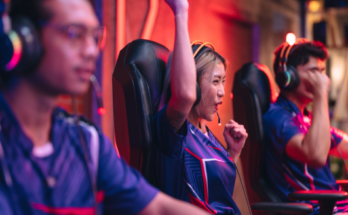In an era where technology is advancing at an unprecedented pace, the landscape of human relationships is also undergoing a transformation. Traditional notions of friendship are evolving as artificial intelligence (AI) companions and virtual reality (VR) experiences become increasingly integrated into our lives. The convergence of these technologies raises intriguing questions about the future of friendship and human connection.
Imagine a world where your closest confidant is not a human being but an AI companion tailored to your preferences and personality. This concept may seem like something out of a science fiction novel, but it’s becoming a reality. AI companions, powered by sophisticated algorithms and machine learning, have the potential to understand us on a level that surpasses traditional human interaction.
One of the most intriguing aspects of AI companions is their ability to adapt and evolve over time. Unlike humans who may change or drift apart, AI companions can continuously learn and improve their understanding of us, providing unwavering support and companionship. Whether it’s offering words of encouragement, helping with daily tasks, or simply being a listening ear, these AI companions have the potential to fill the void left by traditional friendships.
However, the rise of AI companions also raises ethical concerns. Can a relationship with an AI ever truly replicate the depth and complexity of human friendship? Some argue that relying on AI for companionship could lead to social isolation and a devaluation of genuine human connections. Others worry about the implications of giving AI too much control over our personal lives, raising questions about privacy and autonomy.
On the other hand, virtual reality offers a unique opportunity to redefine the way we experience friendship. VR technology allows us to inhabit digital worlds where physical distance is no longer a barrier to connection. Through VR, we can interact with friends and loved ones in immersive environments, fostering a sense of presence and intimacy that transcends traditional communication methods.
Imagine being able to explore exotic locales with friends from across the globe or attend virtual events and concerts together, all from the comfort of your own home. VR has the potential to revolutionize the way we socialize, offering new avenues for connection and collaboration.
However, VR also presents its own set of challenges. As we spend more time in virtual environments, will we become disconnected from the physical world around us? Will VR friendships be able to withstand the test of time and distance, or will they ultimately prove to be shallow and fleeting? These are questions that researchers and ethicists are grappling with as VR technology continues to advance.
Despite these concerns, there’s no denying the potential of AI companions and VR to reshape the future of friendship. As technology becomes more integrated into our daily lives, it’s important to approach these developments with a critical eye and a thoughtful consideration of their impact on human relationships.
Ultimately, the future of friendship lies in our ability to strike a balance between the benefits of technology and the inherent value of genuine human connection. While AI companions and VR experiences offer exciting new possibilities for how we interact with one another, they can never replace the warmth and empathy of a true friend.
As we navigate the complexities of this evolving landscape, it’s important to remember that the essence of friendship lies not in the medium through which it is expressed, but in the depth of understanding and mutual respect that defines our relationships. Whether it’s through a heartfelt conversation with a trusted friend or a virtual adventure in a digital world, the bonds of friendship will continue to shape our lives in ways both profound and enduring.
In conclusion, the future of friendship is a dynamic and evolving landscape shaped by the intersection of technology and human experience. AI companions and VR offer exciting new possibilities for how we connect with one another, but they also raise important questions about the nature of intimacy and connection in an increasingly digital world. As we navigate these changes, it’s essential to approach them with mindfulness and intention, ensuring that our relationships remain rooted in authenticity and empathy.



